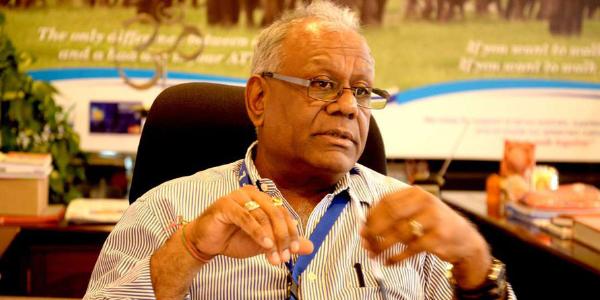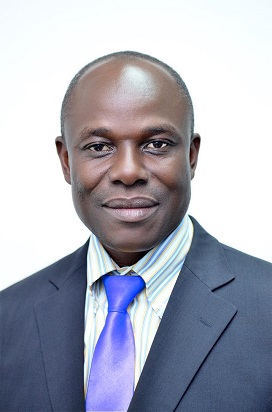Atul Shah, the man behind struggling regional retailer, Nakumatt Supermarket has spoken out for the first time about how debt took down his business.
In an interview with Business Daily, Shah says: “We have been bashed unrelentingly. I have chosen not to defend the truth or criticise lies being passed around. If I did so, people would still come up with new conspiracy theories,” he said.
We reproduce Business Daily’s story:
For more than two decades, Atul Shah perched on the high pedestal of the regional retail business having built eastern Africa’s biggest supermarket chain, Nakumatt.
The Financial Times in 2010 even named the Nakumatt CEO as one of the top 50 influential businessmen in the world, alongside Equity Bank’s James Mwangi and Nigeria’s leading industrialist Aliko Dangote.
But to Nakumatt’s suppliers, bankers and creditors, people whose businesses fed off the retailer’s runaway success, Mr Shah is now the cause of their sleepless nights.
The retail chain’s implosion has left it unable to service its debts. As the Nakumatt Empire diminishes, the 56-year-old entrepreneur has remained in the shadows, never uttering a word in response to the piercing and unrelenting media coverage of the business’ miseries.
“Conspiracy theories”
This stance is deliberate, Mr Shah said in an interview at his Ukay Centre office in Westlands, Nairobi.
“We have been bashed unrelentingly. I have chosen not to defend the truth or criticise lies being passed around. If I did so, people would still come up with new conspiracy theories,” he said.
At its peak, Nakumatt had 63 stores across the region — Kenya (45), Uganda (nine), Rwanda (three) and Tanzania (six) — with the retailer’s management estimating its worth at Sh40.7 billion.
Today, the regional branch count has nearly halved to 34, with 27 stores in Kenya, three in Rwanda and four in Tanzania. Most of these open branches are mere empty shells.
Nakumatt has shed over 1,500 jobs, reducing its staff count to about 2,500. Numerous court cases have piled against the retailer.
But what exactly yanked the wheels off the Nakumatt juggernaut, causing it to run aground? Mr Shah is quite clear on this: the business expanded too fast on borrowed funds; everything was fine until it was not.
According to Mr Shah, the clouds started gathering when Imperial Bank was placed under receivership in October 2015 and grew heavier when Chase Bank suffered a similar fate six months later.
A credit crunch resulting from the enactment of the interest rate capping law in October 2016 made it a perfect storm.
“The Nakumatt engine relied heavily on bank loans to roar on. For a long time, things were fine; we would repay the loans and readily get some more,” said Mr Shah, adding that each branch cost about Sh100 million to open.
“When the two banks collapsed, and the new law took effect, money dried up. Despite repaying our loans, nobody was willing to finance us. The cycle stopped abruptly; Nakumatt’s fuel was no longer available.”
When asked about the exact amount of money the business owes its suppliers and bankers, Mr Shah sidesteps the question, stating that “what matters is that it is a liability.”
The retailer is said to be in the red by between Sh30 billion and Sh40 billion.
To jumpstart its stalled engine, Nakumatt went shopping for an investor who was supposed get a slice of the distressed business with a cash injection of around Sh5 billion. This deal aborted and Haku, as Mr Shah is fondly referred to by his close friends and family, is not forthcoming with the reason.
“It just did not happen,” he said with a blank face.
The Harun Mwau question
The next question is what impact Harun Mwau’s divestiture had on the business.
The former Kilome MP had until 2016 held a 7.7 per cent stake in Nakumatt through Hotnet Limited. He sold his shares to Mr Shah in a transaction that many people construed to have been engineered by the prospective equity investor.
A director of Nanyuki Mall, which recently evicted Nakumatt over unpaid rent, last November claimed that this transaction “diverted (cash) from the business, leading to its collapse.”
Mr Shah, smiling somewhat sarcastically, raises both hands in the air but not his voice, and says nothing could be further from the truth.
“Mr Mwau sold his shares to me. I haven’t paid him a shilling. In business, people come and go and so his exit was not abnormal,” he said, while declining to disclose the transaction amount.
Mr Shah is husband to Harsha (a housewife), and father to Neel and Ankoor. The sons, both under 30, help run the retail chain as business development manager and projects manager respectively.
Bounce back
A fan of volleyball and long-distance driving, the elder Shah remains confident the business will bounce back “one step at a time”, a sense of optimism that Neel also shares.
Even the most loyal of Nakumatt’s former customers do not appear to share this optimism, going by numerous posts on social media that paint the retailer as dead and buried.
Suppliers and creditors battling to get their dues in court have refused any sort of out-of-court settlement, and want the court to decide on the retailer’s fate.
“It has been a tough year but I believe the business will see this through,” Neel, a graduate of the London School of Economics, said in a telephone interview last week.
Mr Shah says most of the business’s creditors have agreed to “park their old debt” and resume supplying even as the legal process seeking to appoint an administrator rolls on in court.
Seven branches, including Village Market and Ukay in Nairobi, have been restocked, he says, with the rest set to be stocked adequately by the end of next month.
“Our suppliers are very supportive. They want to see us back on our feet. We have created an escrow account from which we are paying their dues on a weekly basis,” he said.
Part of the recovery strategy is to shut down more slow-performing outlets “then build from there.”
Leaner business
The leaner Nakumatt will also stock less versions of products, sticking to the fast-moving ones.
This strategy rethink, Mr Shah explains, stems from the fact that 70 per cent of the business’s volumes come from 30 per cent of the products they stock.
As the interview comes to a close, I ask Mr Shah how he has handled the pressure of seeing his business slip into near insolvency and the stress associated with trying to save it.
“Me? Stressed? No. I am a man who has perfected the art of managing stress. I have been through tens of stressful situations, including Westgate and the Downtown branch fire,” he said.
Neel believes the family has been galvanised by the common problem, with a close acquaintance of the Shahs’ adding that their circle of friends has become tighter.
As I walked out of Mr Shah’s office, I spot a hanging on his hallway with the words: “I’d rather attempt to do something great and fail than attempt to do something small and succeed.”






Brilliant reporting